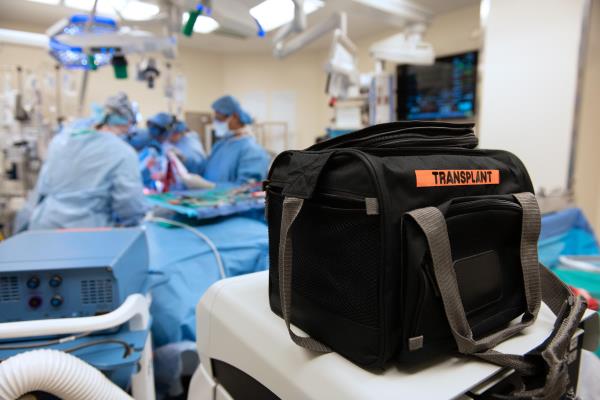Specialists and Care Centers
Kidney Transplantation Specialists and Care Centers
Why choose Northwestern Medicine for kidney transplant:
- We have performed more than 7,000 transplants.
- Our center is one of only a handful of centers in the country offering ABO-incompatible transplantation.
- We are one of a few transplant centers in the country investigating new therapies to help wean transplant recipients off immunosuppressant medications.
- We are a leader in kidney paired donation, a possible solution for donor and recipient pairs who are not compatible with each other.
- We are one of the world’s most experienced centers for steroid-free kidney transplantation.
- We are one of the nation’s leading centers for laparoscopic kidney procedures.
- Our satellite outreach clinics provide transplant evaluation services closer to home.
- Our innovative transplant methods can help patients go home sooner after surgery.
- Our integration with the pancreas and islet transplant programs means patients with renal disease or Type 1 diabetes can get a combined transplant.
Schedule an Appointment
To learn if you qualify for a liver, kidney or pancreas transplant, please call 312.695.8900 (TTY: 711). We can help you schedule an appointment at one of our locations.
Northwestern Medicine Living Donor Program
Northwestern Medicine has the largest living donor kidney transplant program in Illinois and one of the largest programs in the country.
Benefits of receiving a kidney from a living donor:
- There is no waiting period, so you can avoid dialysis or stop it earlier.
- Surgeries can be scheduled at a convenient time for the donor and recipient.
- A kidney from a living donor often works sooner than a kidney from a deceased person and typically lasts longer.
The Northwestern Medicine Kidney Transplant Team
During the course of your kidney transplant care at Northwestern Medicine, you will meet a number of team members. This group of specialists brings expertise from a variety of disciplines and works together to give you the best care possible.
The kidney transplant team includes:
- Transplant surgeons: Physicians who specialize in transplantation. These surgeons will perform your surgery and coordinate with all members of your care team. They will be involved in your care before your transplant, after your transplant and after your discharge from the hospital.
- Transplant nephrologists: Physicians who specialize in disorders of the kidneys. Nephrologists will help manage your transplant before and after the surgery.
- Transplant nurse coordinator: A nurse who will serve as your contact person throughout the transplant process. They will answer all of your questions and organize all aspects of care before, during and after your transplant. The nurse coordinator will provide patient education materials and coordinate your diagnostic testing and follow‐up care.
- Social workers: Professionals who will support you and your family. They will help you address issues that may arise, such as lodging and transportation challenges, financial concerns and legal considerations.
- Dietitians: Professionals who will help you meet your nutritional needs before and after the transplant.
- Physical therapists: Professionals who will help you become physically strong and independent with movement and endurance after the transplantation.
- Pastoral care: Chaplains are available to provide spiritual care and support.
- Other team members: Several other team members will evaluate you before transplantation and provide follow‐up care, as needed. These include, but are not limited to, the following:
- Anesthesiologists
- Hematologists
- Infectious disease specialists
- Lab technicians
- Pharmacists
- Psychologists
- Respiratory therapists
- Urologists
Explore our transplant resources. These include patient education materials, support groups and more.




